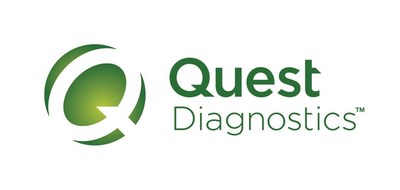Illuminating the Best Cancer Treatment Options
Creating Value with Our Partners
Click here to read the 2014 Corporate Responsibility Report 'Health in Your Han…
The best cancer treatment options vary because individual cancers vary. This is especially true when it comes to advanced, hard-to-treat solid tumors in areas such as the colon, lungs and breasts. That’s why Quest is partnering with Memorial Sloan Kettering Cancer Center (MSK), the largest and most renowned private cancer center in the world, to give hope to patients nationwide who have come to the end of standard treatment options for rare or recurring tumors.
Our new OncoVantageTM diagnostic test combines our patented technology for analyzing tumors on a molecular level with insights from the top cancer clinicians and researchers at MSK, expanding the most leading-edge of cancer treatment far beyond one hospital to millions across the nation. Our laboratory breakdown gives a comprehensive understanding of the genetic underpinnings of tumors. Experts at Memorial Sloan Kettering Cancer Center then provide a complete clinical annotation to the results. The curated insights are delivered to physicians and patients in one easy-to-understand report that gives clear guidance to clinicians and assurance to patients that they are exploring every possible avenue of care. By leveraging MSK’s unique expertise, patients and doctors are able to access options that otherwise may not have been considered, including US FDA-cleared treatment, targeted therapies associated with tumor genotype and potential clinical trials based on mutation status.
For women who have hereditary gene mutations that include BRCA1 and BRCA2, their lifetime risk of developing breast and/or ovarian cancer increases exponentially. Knowing that risk gives them the power to choose surgical and treatment intervention to decrease the chances of the cancer ever occurring, while increasing the chances of early and effective treatment. This year we introduced BRCAvantage PlusTM, which is the most advanced, fine-tuned testing for these hereditary cancers found anywhere. It follows on the heels of our 2013 introduction of BRCAvantage®, a suite of lab-developed tests for assessing BRCA1 and BRCA2 gene mutations, which account for 5 to 20 percent of inherited breast cancers. BRCAvantage PlusTM is the first extension of that service; it adds five new non-BRCA genes that account for a smaller but significant number additional inherited breast cancers.
BRCAvantage PlusTM enables doctors to do highly personalized testing. Physicians can order single gene tests as well as a comprehensive panel, depending on the specific clinical and family history, thus promoting individualized care. This specificity reduces the chance that patients get unnecessary tests or inconclusive results—and the consequent painful uncertainty. With our introduction of BRCA ShareTM in 2015, in partnership with Inserm, the insights gained from this testing can now be pooled to study, better understand and improve cancer care. We’re also a member of the National Colorectal Cancer Roundtable, which is committed to eliminating colorectal cancer as a public health problem, and we embrace the shared goal of an 80 percent colon cancer screening rate by 2018.

